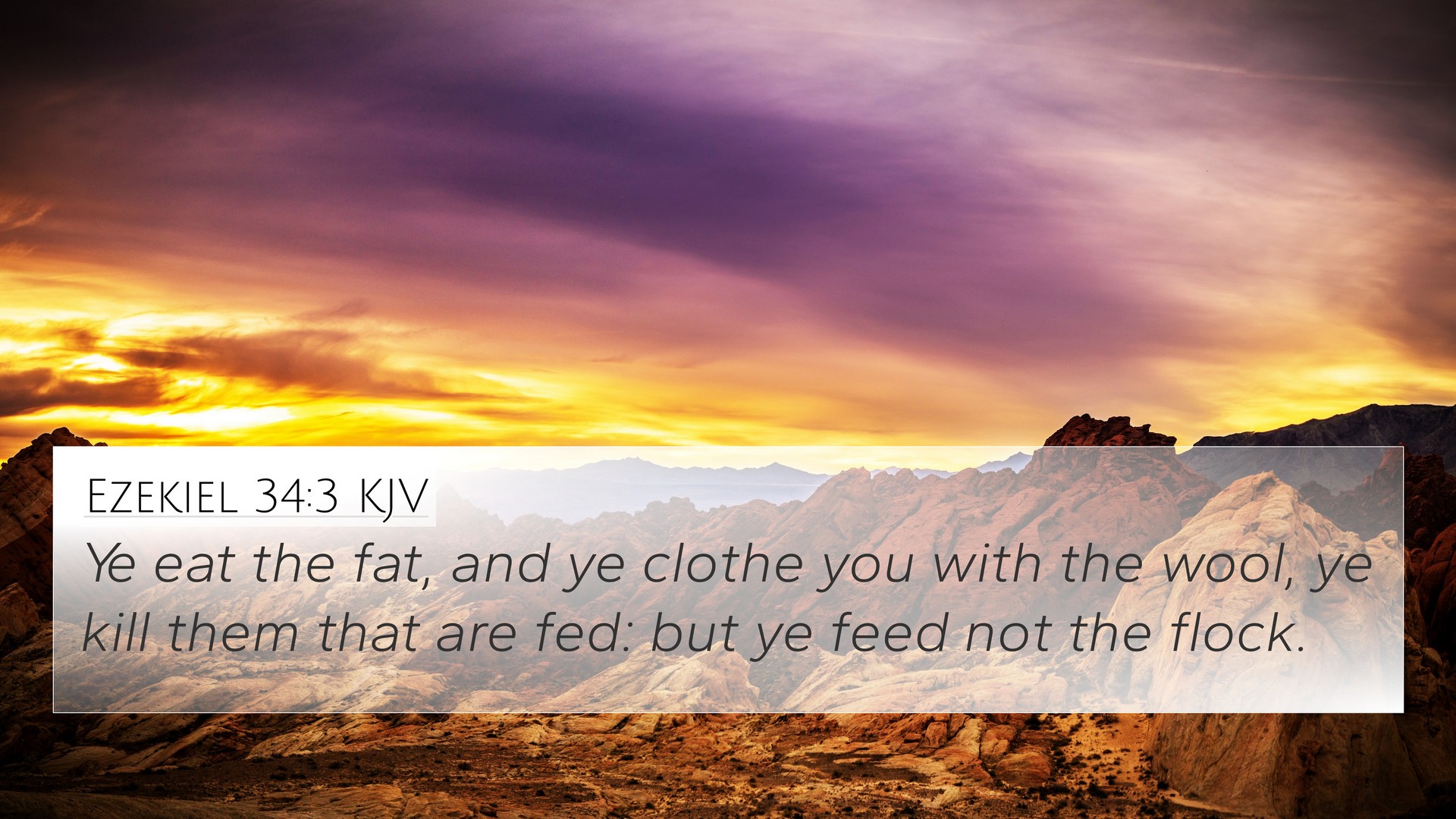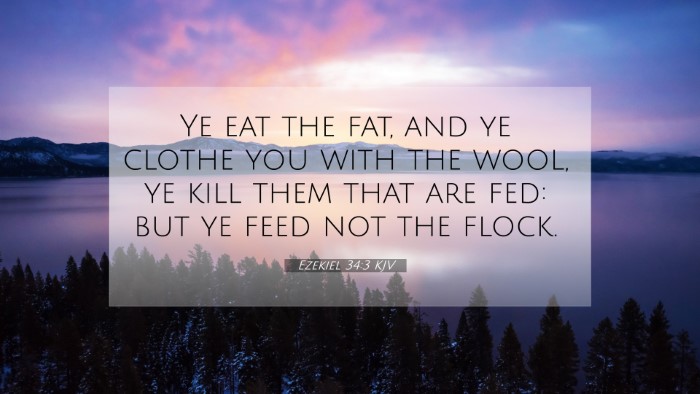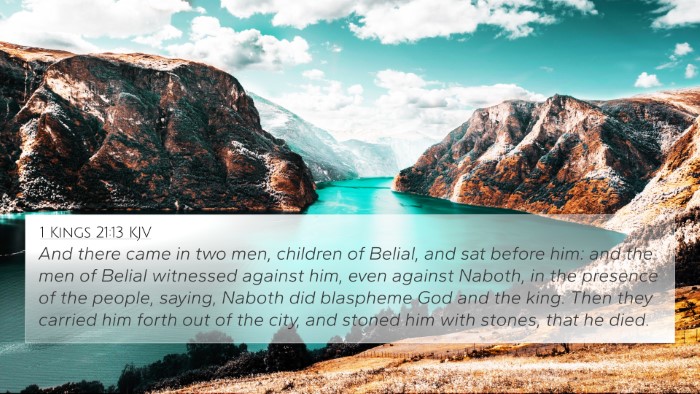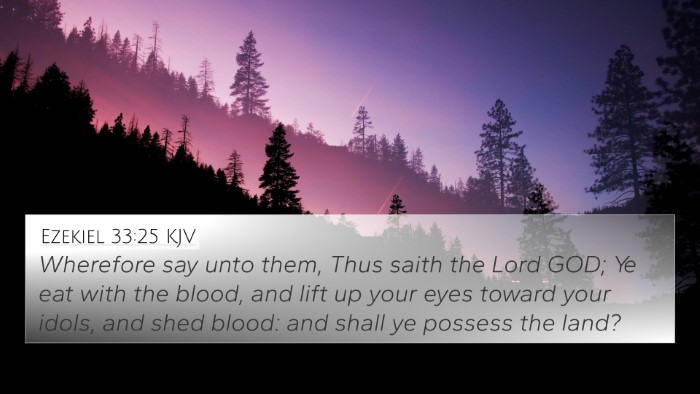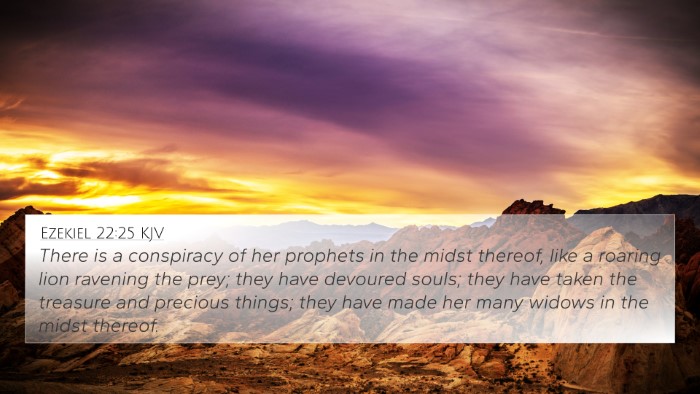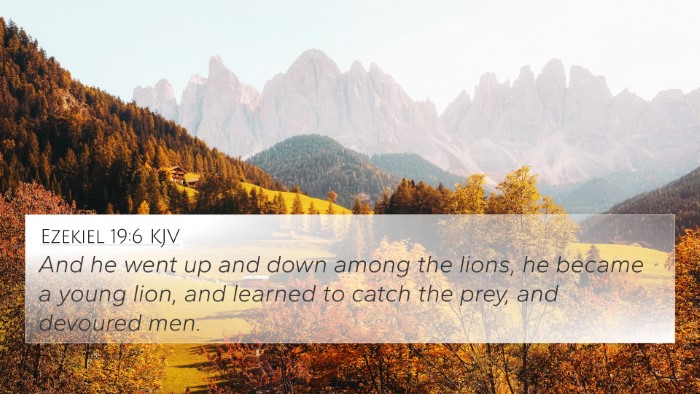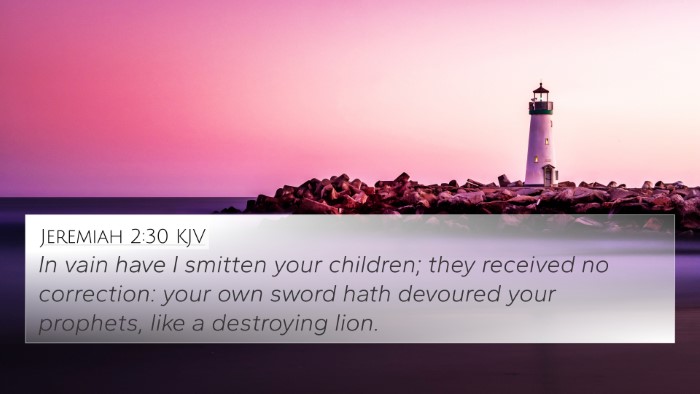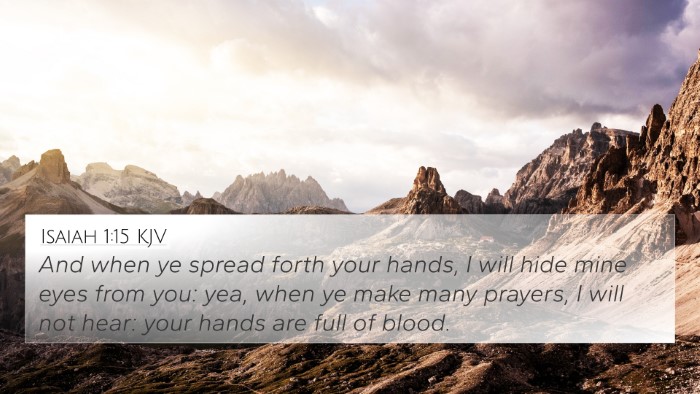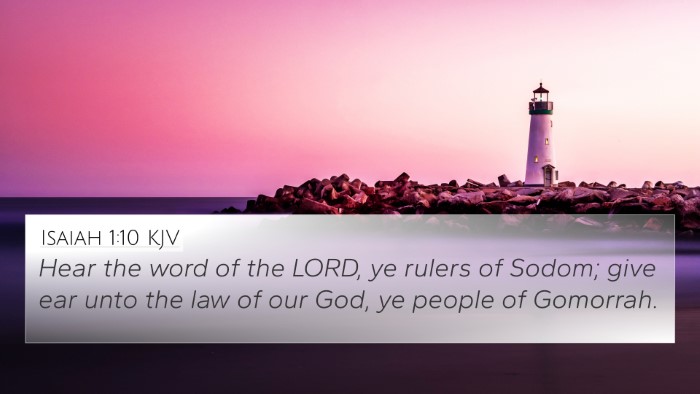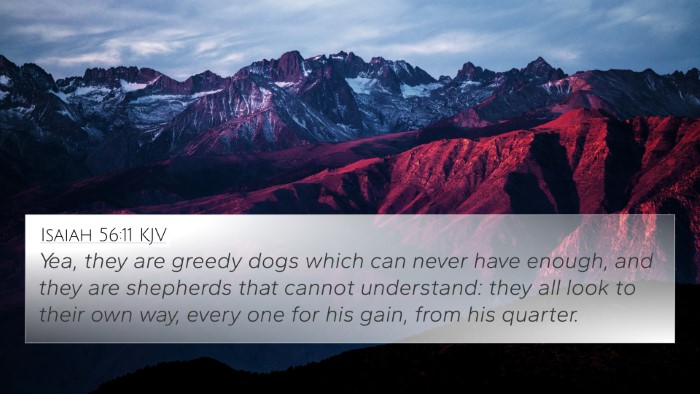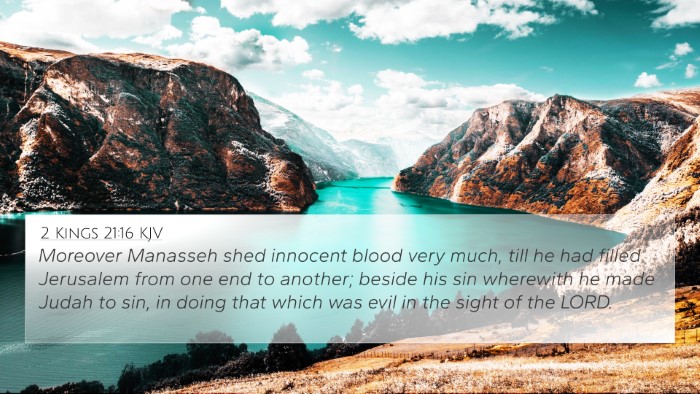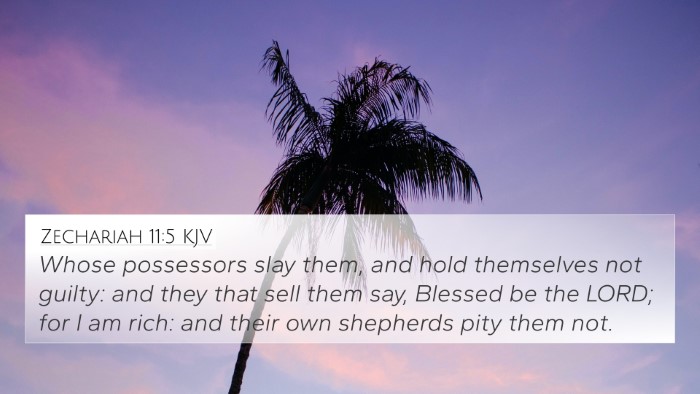Ezekiel 34:3 - Summary of Meaning and Interpretation
Bible Verse: Ezekiel 34:3
Text: "Ye eat the fat, and ye clothe you with the wool, ye kill them that are fed: but ye feed not the flock."
Overview
Ezekiel 34:3 is a poignant indictment against the leaders of Israel, likening them to negligent shepherds who prioritize their own comfort and gain over the well-being of their flock. This verse illustrates a thematic concern throughout the Bible regarding the responsibilities of leadership and the care of God's people. The shepherd metaphor serves to highlight spiritual neglect and social injustice that permeated society at that time.
Commentary Insights
Drawing from the insights of noted biblical commentators: Matthew Henry, Albert Barnes, and Adam Clarke, we can glean a deeper understanding of this verse.
- Matthew Henry:
Henry emphasizes the selfishness of the shepherds (leaders) who consume the resources meant for the flock. Their failure to nurture the weak and care for the needy reflects a wider abandonment of moral duty. This neglect brings about God's judgment and highlights the nature of divine justice.
- Albert Barnes:
Barnes points out that the imagery used in this verse serves to indicate the exploitation of the people by their leaders. The leaders are portrayed as abusing their positions for personal gain rather than fulfilling their role as protectors and providers.
- Adam Clarke:
Clarke provides a historical context, reviewing how the leaders of Israel had failed to maintain their responsibilities towards the people. He notes how this neglect has not only physical implications but spiritual ones too, leading the people further away from their covenant relationship with God.
Bible Verses Cross-Referencing
This verse connects with several other passages that highlight similar themes of leadership and accountability:
- Jeremiah 23:1-4: A direct condemnation of the shepherds of Israel and a promise from God for a better leader to come.
- John 10:11: Jesus identifies Himself as the Good Shepherd, contrasting His care for the flock against the negligence of false leaders.
- Matthew 20:25-28: Jesus teaches His disciples about servant leadership, emphasizing that greatness comes from serving others.
- 1 Peter 5:2-3: An exhortation to elders to shepherd the flock of God willingly and not for dishonest gain.
- Ezekiel 34:10: God’s judgment against the false shepherds who have abused their authority.
- Isaiah 56:11-12: A warning against selfish leaders who care only for their gain.
- Psalms 23:1-3: The quintessential depiction of God as the Good Shepherd providing for His sheep, illustrating divine care.
Thematic Connections
The neglect by leadership is not just historical but is a theme repeated throughout scripture that speaks to God's heart for justice, care, and righteousness:
- Justice for the Poor: Many scriptures highlight God’s concern for the marginalized, underscoring the pastoral care that should characterize leadership (Proverbs 31:8-9).
- Spiritual Responsibility: The interconnectedness of shepherding, spiritual growth, and communal care is echoed in various letters of Paul, particularly in his admonitions to the church in Galatians 6:2.
Application and Reflection
Understanding Ezekiel 34:3 encourages a reflective approach to leadership, whether in spiritual or secular roles. It challenges one to consider the welfare of those under their care, calling for active engagement rather than passive negligence. The implications extend to modern contexts where societal structures may still reflect self-serving leadership.
Conclusion
The verse from Ezekiel serves as a powerful reminder of the ongoing dialogue in Scripture regarding the ethical responsibilities of leadership. It encapsulates God's intent for shepherds: to nurture, lead, and protect their flock with genuine care and integrity. As readers and believers, drawing comparisons and linking these biblical texts helps illuminate the broader narrative of God's justice and mercy, urging a commitment to uphold these principles in our lives and communities.
